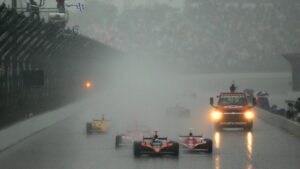Under pressure: insurer wins dispute over damaged pool exclusion

A homeowner whose pool was damaged by heavy rainfall will not be compensated for her loss after a dispute ruling determined that her insurer was entitled to rely on a policy exclusion relating to hydrostatic pressure.
The complainant lodged a claim on March 26 last year after her property was inundated, causing damage to her pool. She also suggested that water from her neighbour’s property had run off and contributed to the deterioration.
Allianz said that the pool had been empty for six months before the claim was lodged and that the damage was caused by hydrostatic pressure, which was excluded from the policy cover.
The claimant said she emptied the pool to paint its liner and wedged a piece of wood across the pool to hold it.
An insurer-appointed builder and a pool specialist reported that the pool sustained damage from the pressure of saturated soil that caused the shell to push inwards. The builder said it would not have occurred if the pool had been full.
Allianz referred to policy wording that explained instances in which the hydrostatic pressure exclusion would be applied.
“An example of where hydrostatic pressure may cause damage to your property is where you have emptied your in-ground fibreglass swimming pool for maintenance purposes and there is heavy rainwater or a flood,” the policy wrote.
“If the pressure exerted on the empty pool by water which has soaked into the surrounding ground, exceeds the weight of the empty pool, it can cause it to ‘pop’ out of the ground.”
The Australian Financial Complaints Authority (AFCA) ruling agreed with the insurer that it was entitled to decline the claim based on the exclusion.
It noted that the exclusion had been specific to “storm, cyclone, rainwater or run-off” insured events and was only applicable once the claimant had shown evidence that pointed to one of these events causing damage.
“In this case the rainfall from the storm caused hydrostatic pressure which damaged the pool,” AFCA said.
“The pool being empty likely contributed to this as it is possible if the pool was not empty the hydrostatic pressure would not have been enough to cause the damage.”
The homeowner sought compensation for Allianz’s claims handling, saying that the insurer had not informed her that her claim was denied.
AFCA disagreed, noting that the insurer had attempted to call the claimant and later emailed her to inform her of its decision.
It said Allianz had handled the claim “in line with good industry practice” and did not require it to pay any compensation.
Click here for the ruling.





